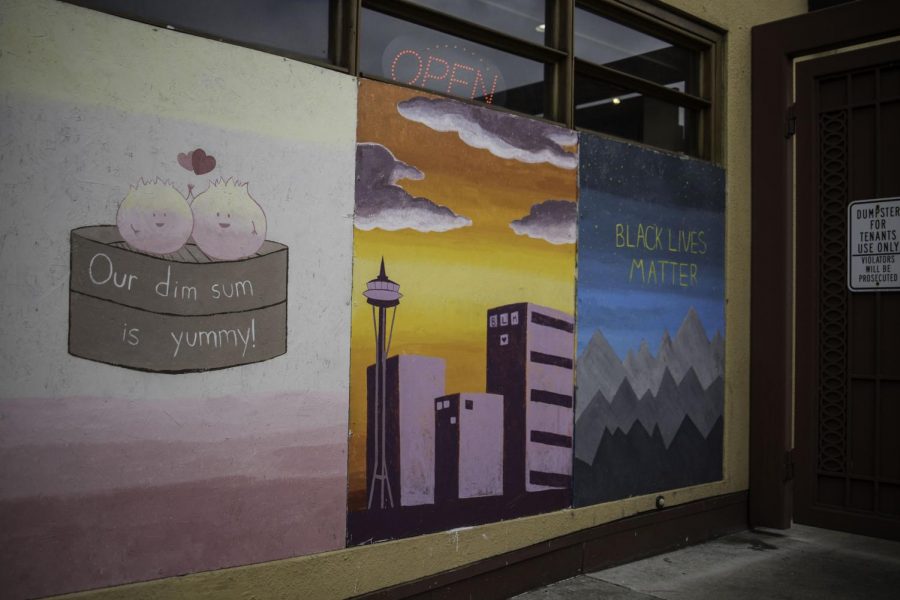A Year of Activism and What That Means for the Seattle U Community
Though the Black Lives Matter (BLM) movement has been around for years, the murder of George Floyd May 25, 2020 sparked cries of outrage nationwide. The issue of police brutality especially against marginalized populations is nothing new, but it has intensified over the past year or so.
After discovering Floyd’s murder was the result of excessive police force, many quickly followed to bring attention and awareness to the many other African Americans who were victims of police brutality.
Tatianah Summers, a fourth-year biology student and the president of Black Student Union (BSU), discussed the implications of the recent traction that the BLM movement has received. “On a global level, I do not think that we have seen a lot of reform, if any at all. Fortunately, I do feel that the movement has had some positive impact on the Seattle U community,” Summers said.
This year, BSU set up the BSU scholarship fund to support Black students. Summers discussed the importance the scholarship holds in ensuring the inclusivity of Black students on campus.
“I don’t think that the scholarship would have gotten the amount of support and donations that it did if it were not for the BLM movement. The scholarship not only supports Black students but encourages a growing demographic of Black students and better representation on our campus, which is ultimately the best thing that Seattle U can do to support students of color,” Summers said.
Soleil Cababa, a fourth-year design major, also reflected on the anniversary of George Floyd’s murder and what it means for the larger BLM movement.
“It’s great that the officers responsible for George Floyd’s murder were prosecuted and there was some sense of justice, but so many others have not gotten their justice, which just goes to show how much more work needs to be done. We’ve taken steps in the right direction, but this is just the beginning,” Cababa said.
Over the past year, the Stop Asian American and Pacific Islander (AAPI) Hate movement has also received a plethora of support. Despite the fact that AAPI communities have long been victims of oppression, the Stop AAPI Hate movement only began after a skyrocketing uptick in hate crimes against Asian Americans.
Madeleine Magana, a second-year public affairs major, expressed her thoughts on the movement.
“The issue with the Stop AAPI Hate movement is that there are so many different political opinions as well as different names for their advocacies. At the same time though, it’s so amazing that there is finally an Asian movement and that I get to be a leader in it,” Magana said.
Cababa, who is multiracial, also reflected on the impact the Stop AAPI Hate movement has had on her Asian family.
“This movement is long overdue. My Asian side of the family and I have put up with bullying and violence because nobody did or said anything. It’s a relief that our voices are finally being heard because we have had to deal with complacency for such a long time,” Cababa said.
Cababa shared her thoughts about Seattle U’s efforts to support students of color.
“It’s great that Seattle U tries to provide resources to students of color and sends emails with statements of solidarity, but it just doesn’t feel like enough. Recently, when Seattle U held the Racial Equity Summit, it finally felt like they were taking a step in the right direction,” Cababa said.
Cababa also shared similar sentiments to Summers about representation on campus.
“It really makes a difference when faculty and staff look like you. It feels like you’re heard when somebody who looks like you is advocating for issues that affect you in the classroom,” Cababa said.
Magana emphasized the importance of having a diverse faculty, especially when it comes to teaching material on BIPOC history and matters.
“I’ve only had one Asian professor during my time here at Seattle U. I wish that there were more BIPOC instructors, because you can see the diversity in their teachings and it’s not the same as when a White professor teaches that same material,” Magana said.
Although Seattle U has begun to take a stance on issues that are important to the community, Cababa strongly advised the university not to get too comfortable with the work they have done.
“There is a tendency to relish in the small steps that have already been taken. The university needs to continue doing what they are doing, otherwise nothing is ever going to change. Never forget that these steps are extremely imperative in changing the face of our community for the better,” Cababa said.


